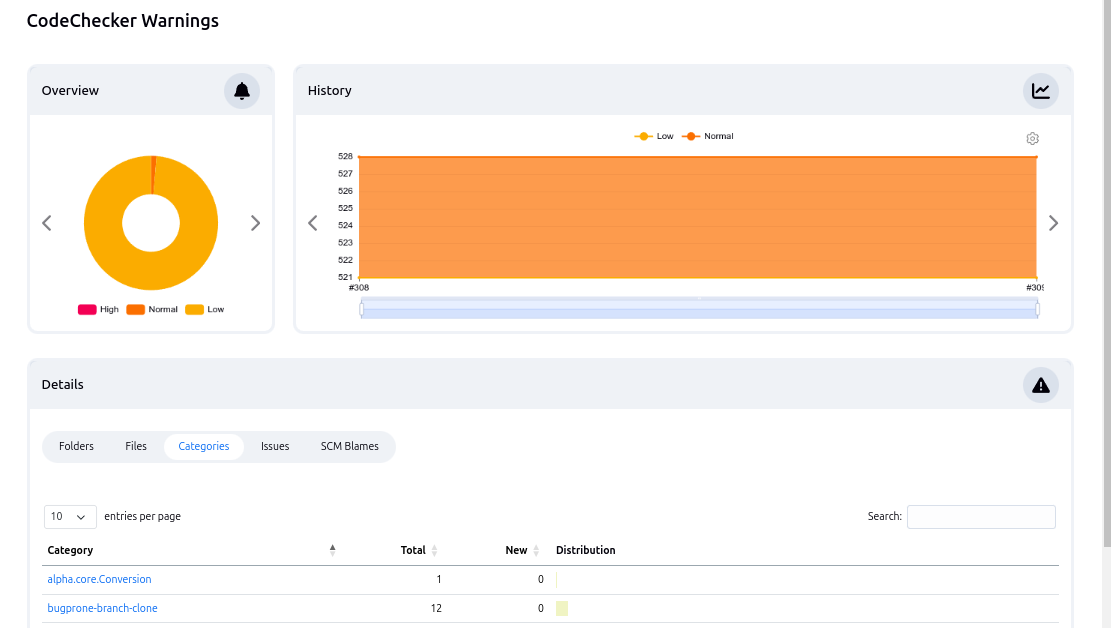Warning-ng Jenkins plugin codechecker integration
Contact Us
Amarula Solutions
Streamlining Static Analysis with CodeChecker and Jenkins Warnings NG
In the world of software development, ensuring code quality and security is paramount. Static analysis tools play a crucial role in identifying potential issues early in the development lifecycle, saving time and resources. CodeChecker, a powerful static analysis tool, combined with the Jenkins Warnings NG plugin, provides a robust solution for automating and visualizing code analysis results within a continuous integration environment. This article explores the benefits of integrating these two tools and how they can improve your development workflow.
What is CodeChecker?
CodeChecker is an open-source static analysis tool suite capable of detecting a wide range of code defects, including:
Bug Detection: Identifies potential bugs such as memory leaks, null pointer dereferences, and division by zero.
Style Violations: Enforces coding standards and best practices, promoting code consistency and readability.
Security Vulnerabilities: Detects potential security flaws like buffer overflows and format string vulnerabilities.
Concurrency Issues: Identifies potential problems related to multithreading and concurrency.
CodeChecker supports various programming languages, including C, C++, and Objective-C, making it a versatile tool for diverse projects. It offers a command-line interface and can be easily integrated into build systems.
What is the Jenkins Warnings NG Plugin?
The Jenkins Warnings NG plugin is a powerful Jenkins plugin that collects and displays compiler warnings, static analysis issues, and other build warnings. It provides a centralized view of all warnings across different build tools and analysis tools, making it easy to track and manage them. Key features include:
Unified Warning Display: Aggregates warnings from various sources into a single, manageable view.
Trend Analysis: Tracks the evolution of warnings over time, allowing developers to identify and address recurring issues.
Filtering and Sorting: Provides flexible filtering and sorting options to prioritize and focus on specific types of warnings.
Integration with Build Status: Allows warnings to influence the build status, failing builds with critical warnings.
Detailed Reporting: Generates comprehensive reports on detected warnings, including context information and links to the source code.
The Power of Integration: CodeChecker and Jenkins Warnings NG
Integrating CodeChecker with the Jenkins Warnings NG plugin brings several advantages:
Automated Analysis: CodeChecker can be integrated into your Jenkins build pipeline, automatically running static analysis on every build.
Centralized Visualization: The Warnings NG plugin displays CodeChecker’s findings within the Jenkins dashboard, providing a clear overview of code quality.
Early Issue Detection: By running static analysis on every commit, potential issues are identified early, preventing them from propagating into the codebase.
Improved Code Quality: The combined solution encourages developers to address warnings and improve code quality, resulting in more robust and maintainable software.
Simplified Workflow: The integration streamlines the process of code analysis and warning management, making it easier for development teams to maintain high code quality standards.
Example Jenkins Pipeline Snippet using Amarula Solutions Library:
#!groovy
import com.amarula.build.Build
import com.amarula.changelog.Changelog
import com.amarula.codechecker.analysis.Analyzer
import com.amarula.codechecker.analysis.Language
import com.amarula.codechecker.report.CodeCheckerReportFormat
import com.amarula.ui.Ui
node {
def dockerImage = 'bb2-builder:1.0.5'
def dockerOptions = ' --privileged -v /proc:/proc -v /sys/fs/cgroup:/sys/fs/cgroup:ro -v /var/run/dbus:/var/run/dbus'
def manifestUrl = "${GITEA_SSH_URL}/beepbeep/bb2-firmware.git"
def credentials = ['c4f9fa8c-45d7-459e-a645-203f1245d914', '9af8a985-9516-467e-b9cb-0174692fe8c0']
def ui = new Ui.Builder(this)
.addStringParameter("BRANCH", "master", "Branch or tag to be built")
.addStringParameter("GERRIT_TOPIC", '', "Gerrit Topic to cherry-pick.")
.addStringParameter("Mailers", "", "Address to send emails")
.addBooleanParameter("Email", false, "Send email with changelog and artifacts")
.addBooleanParameter("Security", true, "Enable build with security enabled")
.build()
env.CI_JENKINS_LIB_VERIFICATION_OVERRIDE = 1
ver = new Build(this, env, credentials)
ver.setSyncMethod(Build.CHERRYPICK)
def ref = params.BRANCH
def status = ""
def skipfile = "${env.WORKSPACE}/skipfile.txt"
def textfile = "-*/build/*\n" + "-*src/LowLevelDrivers/*"
writeFile file: skipfile, text: textfile
currentBuild.description = "<br>Version<br>"
final def buildCode = [
'Build ARM using gcc' : {
status = sh(returnStatus: true, script: 'git describe --tags')
def fromRef
if (status != 0) {
status = ""
fromRef = """git rev-list --max-parents=0 HEAD"""
} else {
status = "_" + sh(returnStdout: true, script: 'git describe --tags').trim();
fromRef = """git describe --abbrev=0 --always --tags HEAD^ --match='v[0-9].[0-9].[0-9]'"""
}
def options = [from: fromRef, to: "HEAD"]
def security
if (Security.toBoolean()) {
security = "USE_SECURITY=1"
}
sh """
make clean
"""
ver.logBuild("make USE_GCC=1 USE_STM32G071=ON POSTFIX_NAME=${status} ${security} all")
if (Security.toBoolean()) {
sh """
export PATH="${PATH}":/opt/STM32/STMicroelectronics/STM32Cube/STM32CubeProgrammer/bin
STM32_Programmer_CLI -sl bins/bb2_controller*.bin 0x8000000 0x801E000 0x400
STM32_Programmer_CLI -sl bins/bb2_deployer*.bin 0x8000000 0x801E000 0x400
"""
}
def changelogString = new Changelog().generate(this, options)
currentBuild.description += changelogString
},
'Static code analysis' : {
def tool = ver.analyzeBuild(Language.C_CPP, [Analyzer.clangtidy, Analyzer.clangsa], [ignore: skipfile])
def outputFile = tool.createReport(CodeCheckerReportFormat.TXT, ".")
recordIssues sourceCodeRetention: 'MODIFIED', tool: codeChecker(pattern: outputFile)
}
]
def options = ['branch': ref, history:true, 'dockerImage': dockerImage, 'dockerOptions': dockerOptions,
'gerritProject': 'beepbeep/bb2-firmware']
ver.build(manifestUrl, buildCode, options)
notification.monitoredStage('Deploy') {
def filename = 'release' + status + '.tgz'
sh(returnStdout: true, script: 'tar -C bb2-firmware -czf ' + filename + ' bins/');
archiveArtifacts filename
if (Email.toBoolean()) {
def sub = 'New BBD release' + status + ' PDK'
emailext(attachmentsPattern: filename, mimeType: 'text/html', body: currentBuild.description,
subject: sub, to: Mailers)
}
notification.notifySuccess()
}
}

Conclusion:
The combination of CodeChecker and the Jenkins Warnings NG plugin offers a powerful and efficient solution for automating static analysis and managing code quality within a continuous integration environment. By integrating these tools, development teams can identify and address potential issues early, improve code quality, and deliver more robust and secure software. This approach promotes a culture of code quality and helps to streamline the development workflow. Remember to consult the official documentation for both CodeChecker and the Jenkins Warnings NG plugin for the most up-to-date information and detailed configuration instructions.